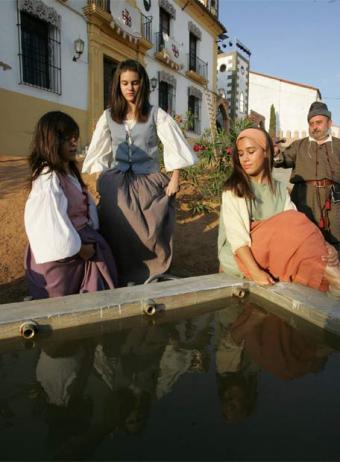As a follow-on from my post on Google Books, a surreal example of copyright maximalism from Spain. Via reporter Álvaro Corcuera in El Pais; the article was translated for the IHT insert yesterday, which they put on the Web without an archive (why?).
The Spanish performing rights collective, the Sociedad General de Autores (SGAE), is dunning the Cordobese village of Fuente Obejuna (population 3,000) for €12,000 euros in unpaid fees for performances of a play written by Lope de Vega in 1610. The villagers put it on every year, as the centrepiece of their enterprising mini-festival. The specious argument is that these are adaptations, not stagings, which the producer denies. The claim includes this year’s production by a man who isn’t a member of the SGAE and says that he’s happy to cede any rights he may have to the town council.

(Photo F. J. Vargas, El País)
The really piquant angle is that the subject of Fuenteovejuna is a peasants’ revolt against a tyrannical landlord, the Comendador. They kill him and King Ferdinand - after torturing the leaders - lets them get away with it. The villagers are not backing down. “Next year the Comendador will be Ramoncín” (a rock singer on the SGAE board).
What we are seeing on copyright is a peasants’ revolt: disorganised and sometimes badly targeted, but expressing widespread popular anger against undeserved privilege. The maximalists should be running for cover, not engaging in futile provocations.
It’s marvellous the way classic plays still have the power to create trouble. When Declan Donnellan put on The Tempest in Bucharest in 1989, the representatives of Ceauşescu’s decaying government walked out.
!Sí, pasaran!